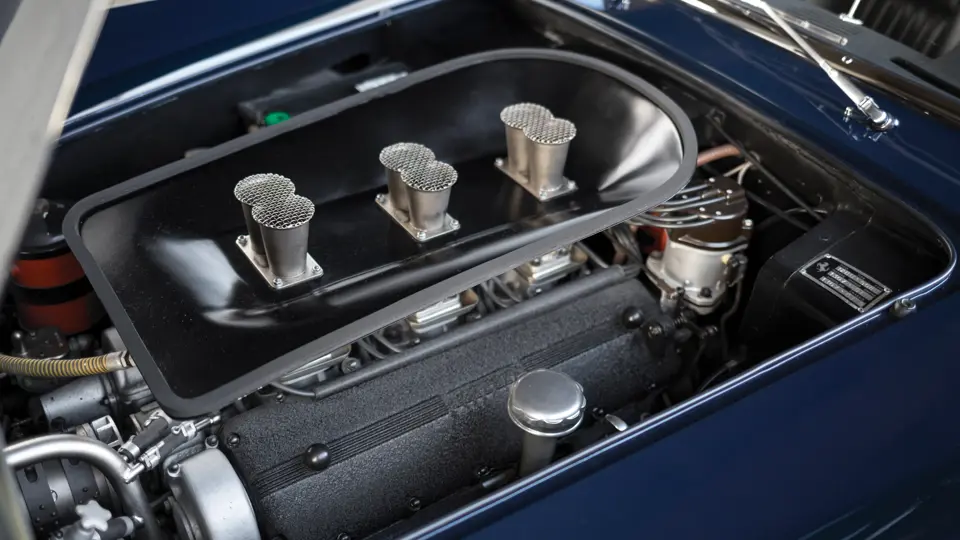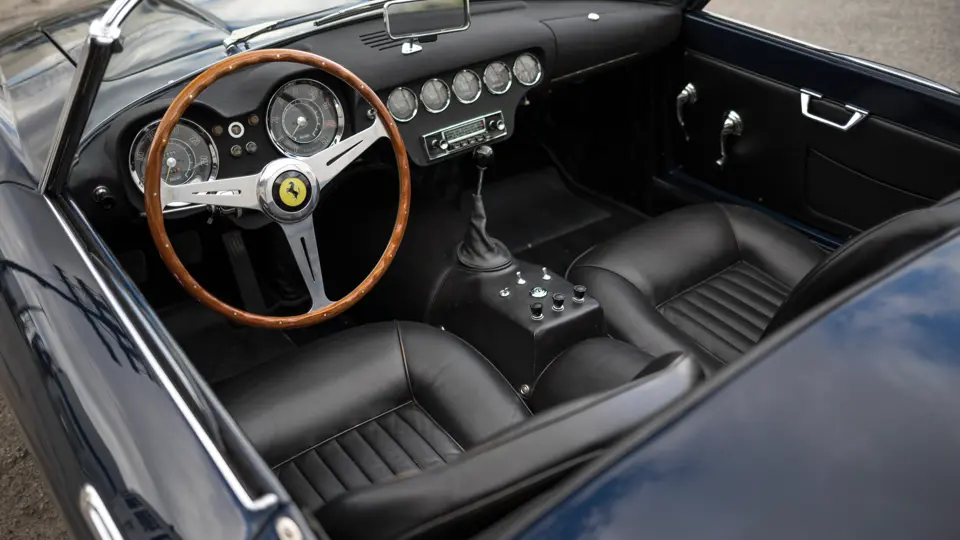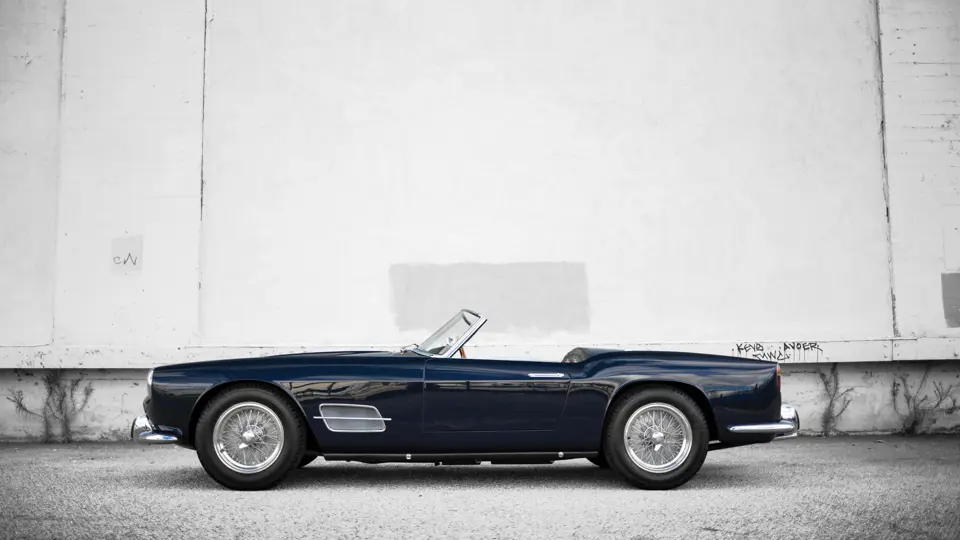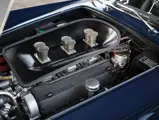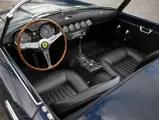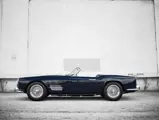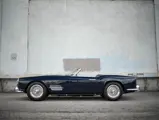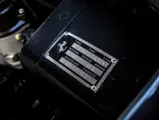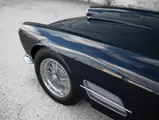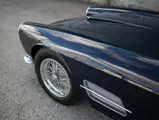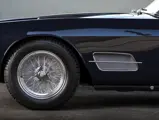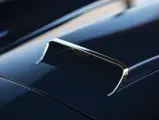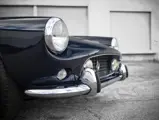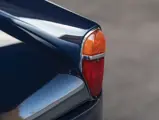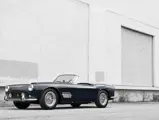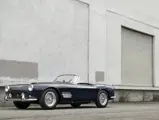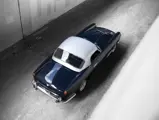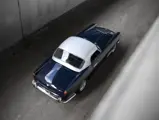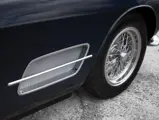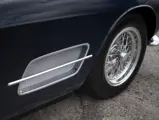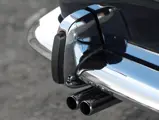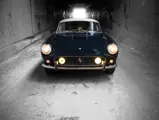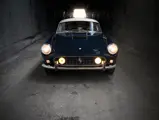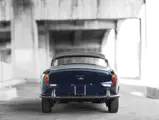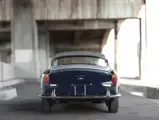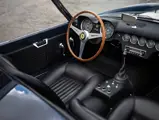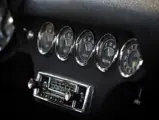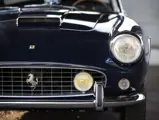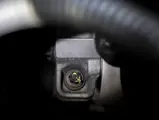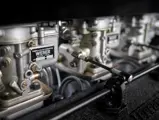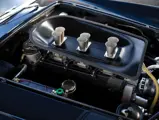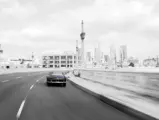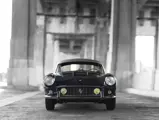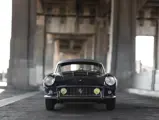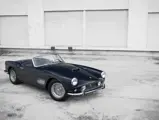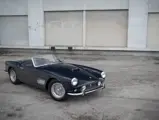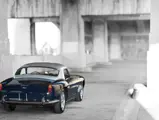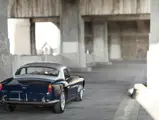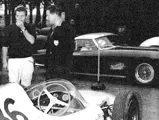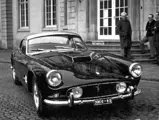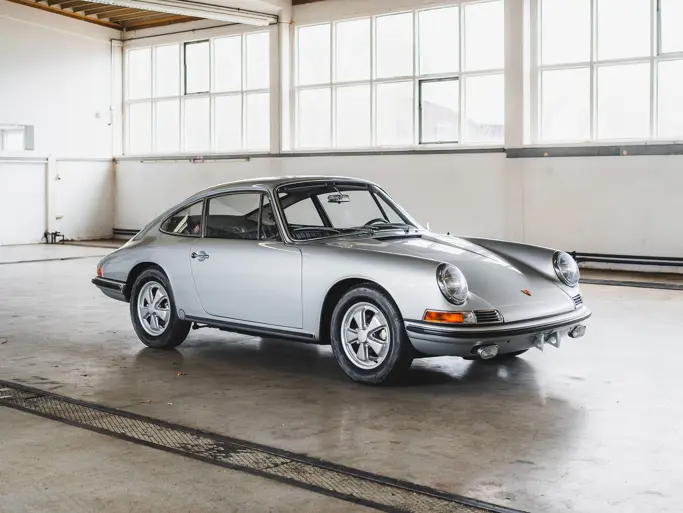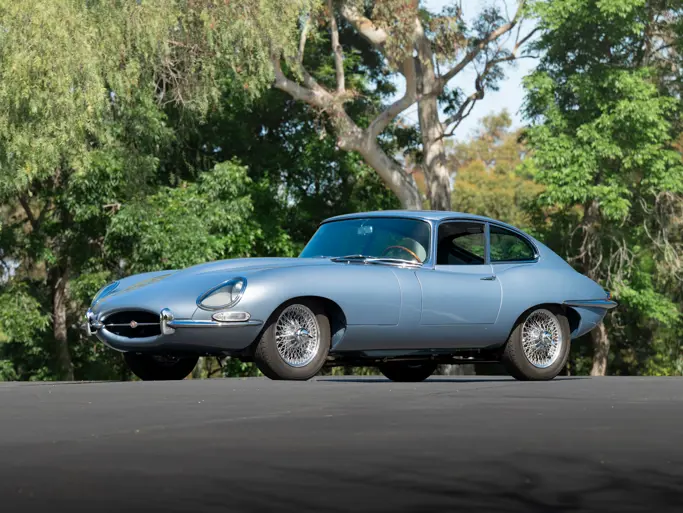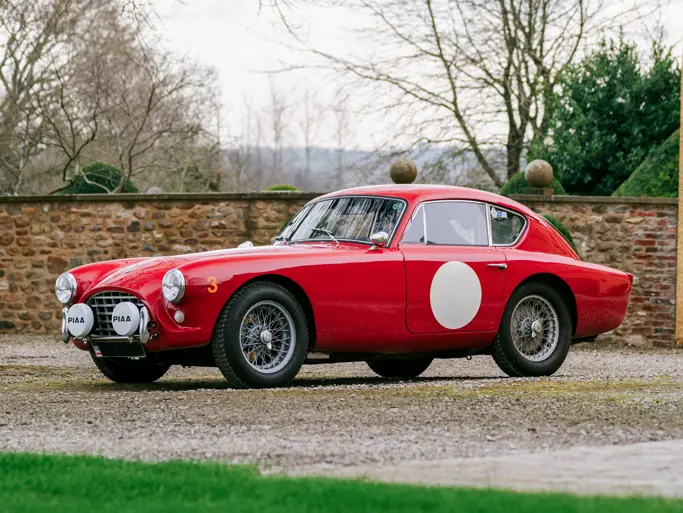
1959 Ferrari 250 GT LWB California Spider by Scaglietti
{{lr.item.text}}
$8,500,000 USD | Sold
The Pinnacle Portfolio: A Rare Collective of Automotive Distinction
{{bidding.lot.reserveStatusFormatted}}
- The sexiest Ferrari of them all; a single icon
- The 23rd of 50 LWB California Spiders built
- Formerly owned by Prince Alvise Hercolani, Wolfgang Seidel, and Ed Niles
- Highly desirable and rare factory-installed features, including Superamerica-style front fender vents, an inset air intake on the hood, and velocity stacks
- Possibly the most uniquely designed California Spider built
- Matching numbers throughout; Ferrari Classiche certified
240 bhp, 2,953 cc SOHC Colombo V-12 with triple Weber carburetors, four-speed manual transmission, independent front suspension via A-arms, coil springs, and telescopic shocks, rear suspension via live axle, semi-elliptical springs, and hydraulic shocks, and four-wheel hydraulic disc brakes. Wheelbase: 102.4 in.
Depress your right foot on the accelerator pedal and the 12-cylinder engine just inches in front of you comes to life. On a winding coastal road, the car reacts with confidence to your every input and is exceedingly direct, but it is also careful to sweep you through every part of the journey. Sporting yet not exhausting. Exciting yet not stressful. This is most certainly the perfect car for long journeys at high speed. Couple that with the feeling of the wind rushing through your hair, a beautiful woman by your side, and your hands on the wheel of one of the most attractive automobiles ever built. Could life be any better?
This is what life is like for the few fortune owners of Ferrari’s California Spider, a car which stands to this day as the most iconic convertible ever built.
CHASSIS NUMBER 1307GT
Chassis number 1307GT was constructed in early 1959 and began life as the 23rd of 50 LWB California Spiders built by Ferrari. On March 27, 1959, it was sold new directly from the factory to its first owner, Prince Alvise Hercolani of Bologna. Of course, a Ferrari fit for a prince would have some custom features, and this California Spider is no exception.
To begin to describe in detail how sensuous the looks of this particular California Spider is would be wasting time and words, just as trying to explain how Audrey Hepburn is beautiful. The car is fitted with open headlights, which was a configuration seen only on a handful of California Spiders, including the examples that finished 1st overall at the 1959 12 Hours of Sebring (1207GT) and 5th overall and 3rd in class at the 1959 24 Hours of Le Mans (1451GT). The open headlight configuration provided greater visibility than closed headlamps, as the covers obstructed the light during nighttime driving. According to noted Ferrari historian Marcel Massini, 1307GT was originally fitted with highly attractive Superamerica-style front fender vents, an inset air intake on the hood, and a hardtop, giving this particular California Spider a very elegant appearance.
The car’s special features were not only skin deep. Under the hood, the car’s 3.0-liter Colombo engine was topped with triple Weber carburetors, which breathed through factory-fitted velocity stacks contained within a cold air box; these are highly desirable performance options that were fitted to only a handful of examples. Inside, the ignition switch and other controls were relocated from the dashboard to on the transmission tunnel below the dashboard and instrument panel, allegedly in an effort to give taller drivers more leg and knee room.
Hercolani owned chassis number 1307GT for just six months before selling it to Wolfgang Seidel, the German racing driver who had competed in a number of events, including a handful of Formula One grand prix, the Mille Miglia, and the 1958 12 Hours of Sebring, where he and American Harry Schell placed 3rd overall and 1st in class in a Porsche 718 RSK. Appropriately, chassis number 1307GT also saw limited use on the race track under Seidel’s ownership, placing 2nd in class at the March 1960 Pferdsfeld airfield race in Germany, where it was driven by Gerd Koch. The car was also seen at the fifth Brussels Grand Prix in 1961, where Seidel was entered to race a Lotus-Climax yet did not start the race.
In 1961, Seidel sold the car to Rolf Helm, who in turn sold it to William W. Morgan, an American living in Wiesbaden, Germany. Morgan drove the car quite frequently in his ownership, including on a trip from Wiesbaden to Marseille. He then put the car on a boat to Corsica, where he spent a two-week vacation with his wife. The car was then shipped to Geneva and driven by Morgan to Modena in 1962. Both of these are journeys perfectly suited for a car like the California Spider. Fast, luxurious, and comfortable: this was an automobile perfectly suited for traveling in high fashion to and from beautiful locales. Morgan had the car serviced at the factory in September 1963, and in 1965, he had it again shipped by boat, this time to his new home in Pleasant Hills, California. Morgan relocated to Scottsdale, Arizona, later that year and advertised the car for sale the following summer.
On September 22, 1966, Morgan sold the car to none other than Ed Niles, a Los Angeles-based attorney and well-respected Ferrari collector and historian. Niles had the car repainted dark red but only kept it for just under a year before selling it to Ronald Semler, of North Hollywood, in June 1967.
THIRTY YEARS OF SINGLE OWNERSHIP
Jim Swartout, a 29-year-old college student from Lake Forest, Illinois, purchased the car in November 1968. A few years later, Swartout moved to California, where he kept the California Spider for the next 30 years. In 1989, the car was noted as being highly original.
After selling his dental supply business and retiring, Swartout listed the car for sale, and it was eventually sold to Jonas Linden, of Stocksund, Sweden, in 1999. Linden commissioned a full restoration at Carrozzeria Autosport, Bacchelli & Villa in Bastiglia, Italy. The car was first shown following its restoration at the Ferrari Owners’ Club UK National Concours in June 2001 by Peter Jaye, although it was still owned by Linden at that time.
The car was purchased by Joe Hayes, of Chicago, Illinois, in 2003, and Hayes immediately hit the road, participating in the Texas 1000 and New England 1000 rallies with his wife. After the completion of the rallies, the car was stripped to its bare metal and refinished in dark blue, the same color it was during Seidel’s ownership, and its hardtop was refinished in silver, also the color it sported under Seidel’s tenure. The car was shown at the Meadow Brook Concours d’Elegance in August 2005. Three years later, it was shown at the Pebble Beach Concours d’Elegance in the special California Spider class.
In 2009 and 2010, Hayes invested nearly $115,000 to bring chassis number 1307 up to Ferrari Club of America Platinum award-winning standards. Ferrari specialist Greg Jones was commissioned for a complete motor and suspension rebuild, and the entire car was detailed to concours standards before being shown at the Cavallino Classic in 2011. At this time, the car was certified by Ferrari Classiche and confirmed to be matching numbers throughout.
Hayes sold the car in 2011, and it was purchased by Adam Lindenmann, an avid art collector living in New York City. Lindeman sold the car in late 2013 to Jean-Claude Biver, of Switzerland. Biver commissioned Garage Alberto Donati in Corseaux to refresh chassis number 1307GT’s restoration; accordingly, it was refinished in a similar shade of dark blue.
Shortly thereafter, the car was purchased by its current owner, and it has been maintained ever since in a climate-controlled environment and exercised appropriately to ensure that it remains in excellent cosmetic and mechanical condition. It is offered with a hearty file, including copies of its original build sheets, its Classiche certification binder, the car’s original Automobile Club d’Italia forms, correspondence between previous owners, and service and restoration invoices.
Chassis number 1307GT features several unique and desirable factory features, making it a highly compelling and very desirable example of one of Ferrari’s most iconic convertibles. With a combination of special features that enhance both its beauty and performance, 1307GT offers the best of both worlds and perfectly illustrates Ferrari’s incredible penchant for building sporting automobiles with a flair for Italian luxury. While all California Spiders are exceptional vehicles, it is those with unique features that add to their visual appeal that are the most desirable. As a result, these examples command a significant premium in today’s market over any “standard” examples. Incidentally, the most valuable examples of the California Spyder, many of them with competition history, feature open headlights, just like 1307GT.
First and foremost, a California Spider is nothing short of iconic, not only in terms of collectability and design but also in terms of its significance to pop culture and its inarguable sex appeal. It is a design of relative simplicity that is at once instantly recognizable and utterly perfect yet immediately acknowledged by all who behold it, expert or otherwise, as one of the most desirable Ferraris in the world. Chassis 1307GT, with its features, colors, and hardtop, has presence unlike any of its siblings, and it is widely regarded as one of the most stunning examples in existence.

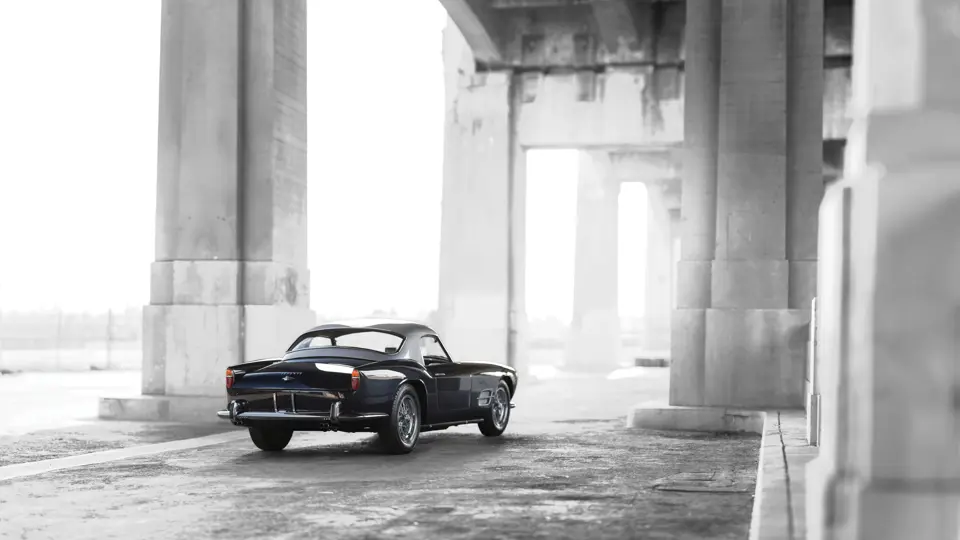
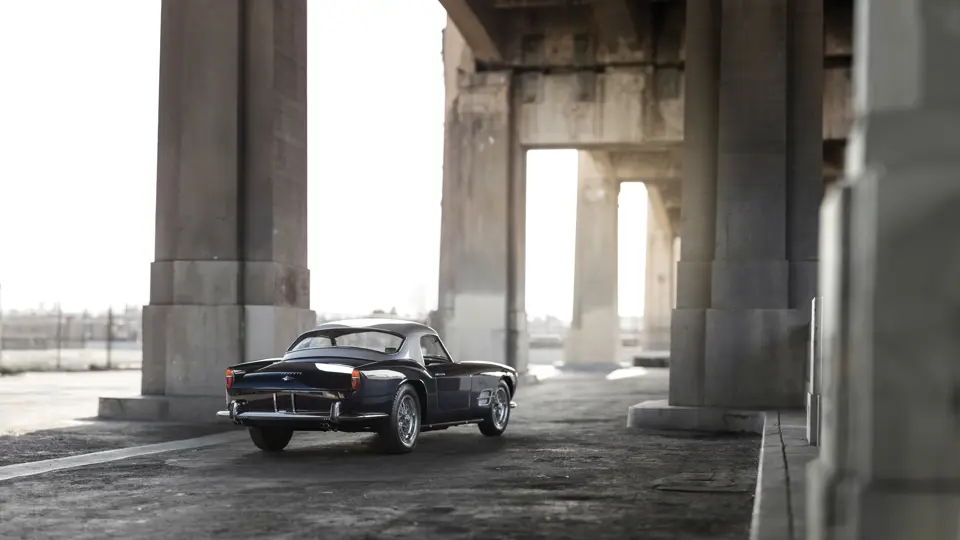

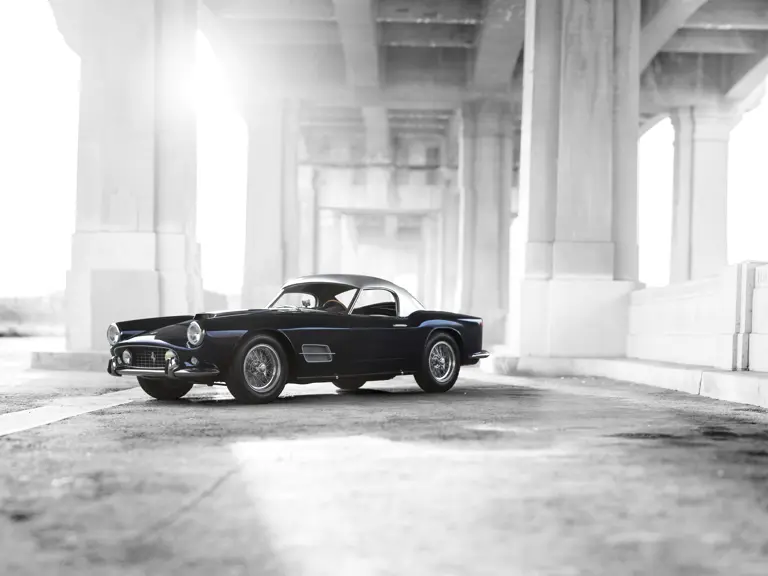
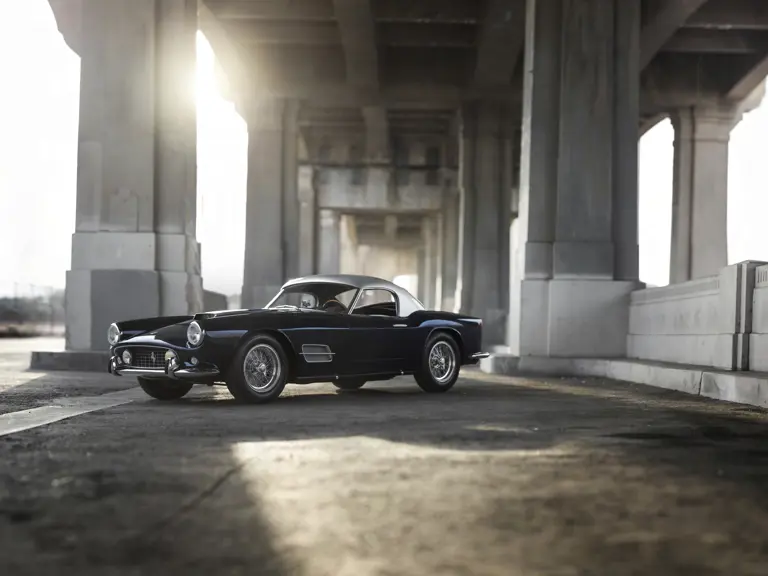
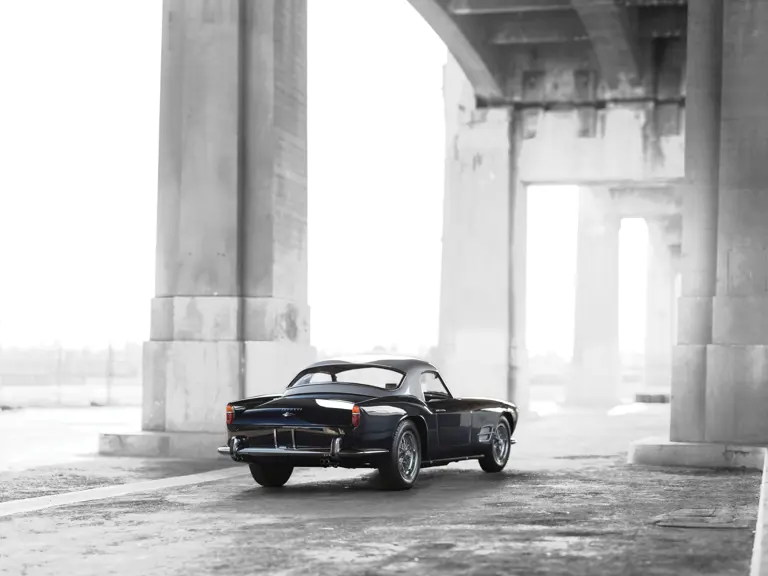
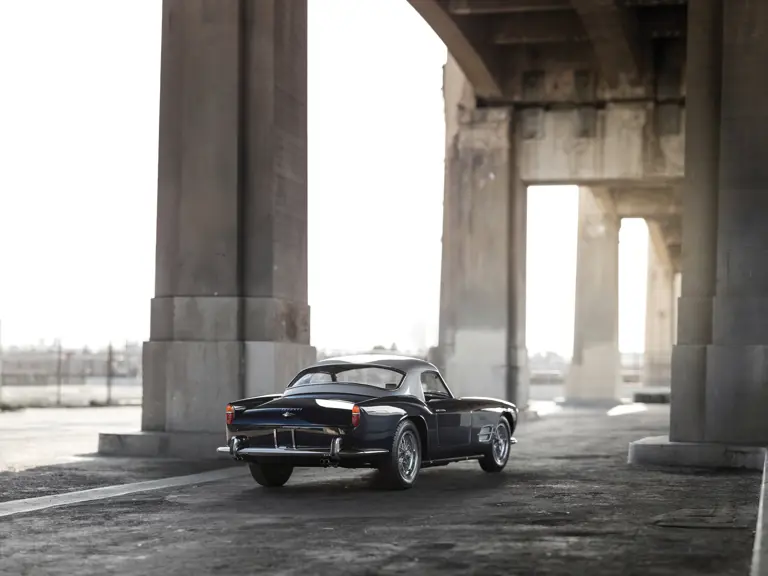
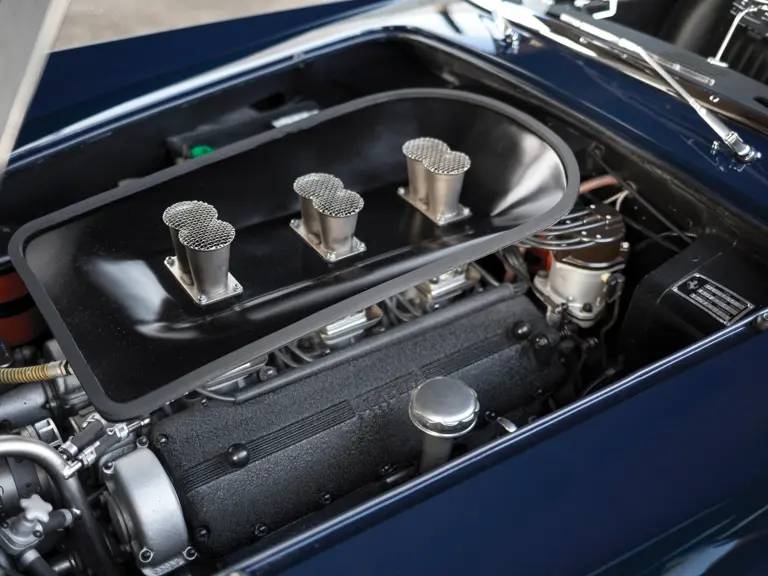
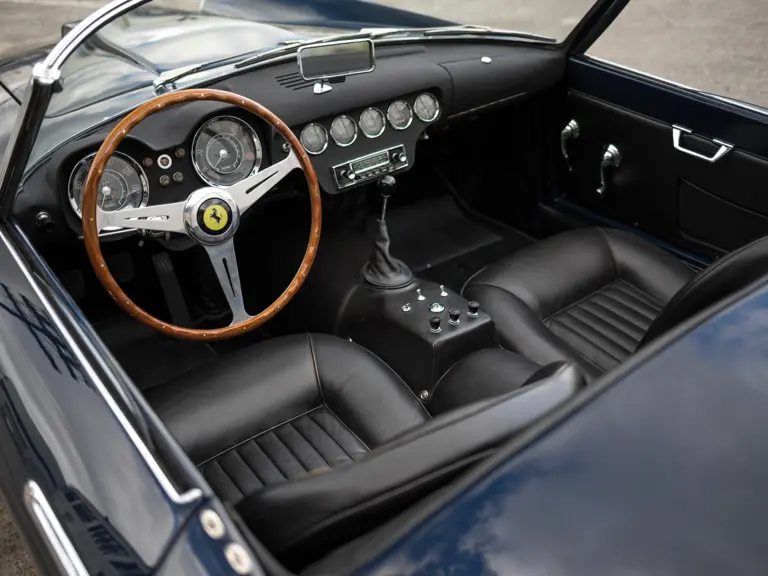
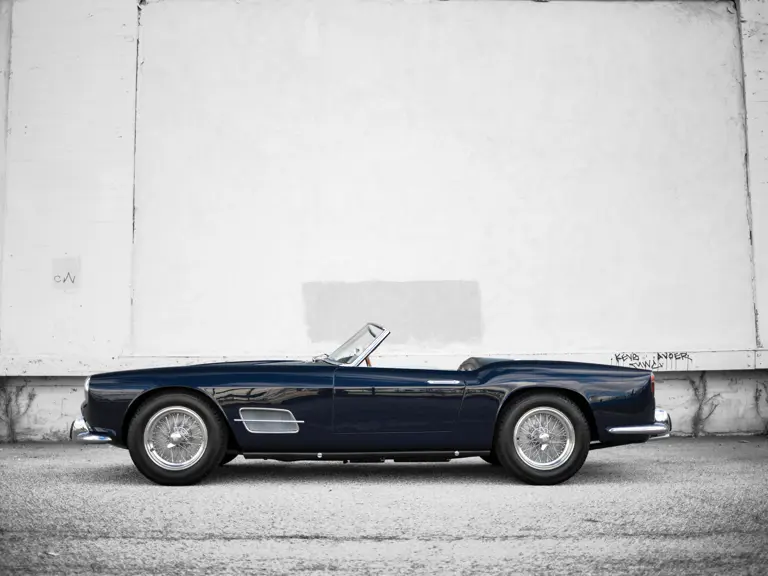
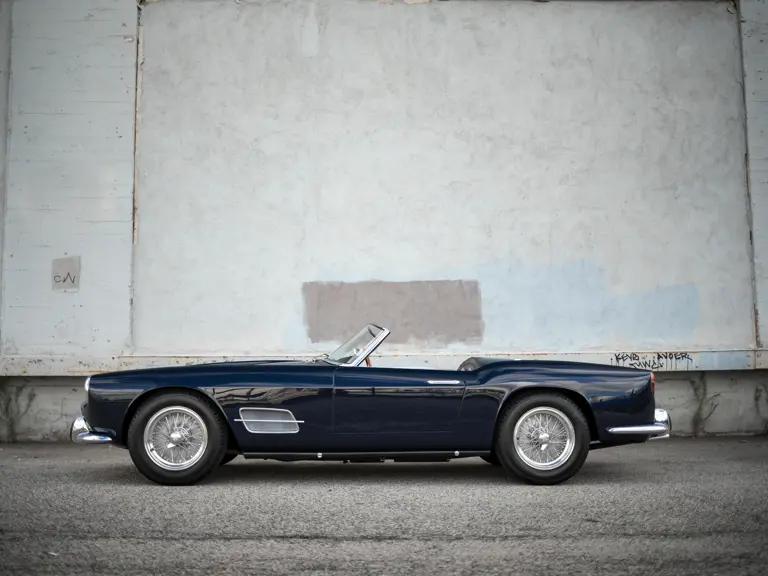
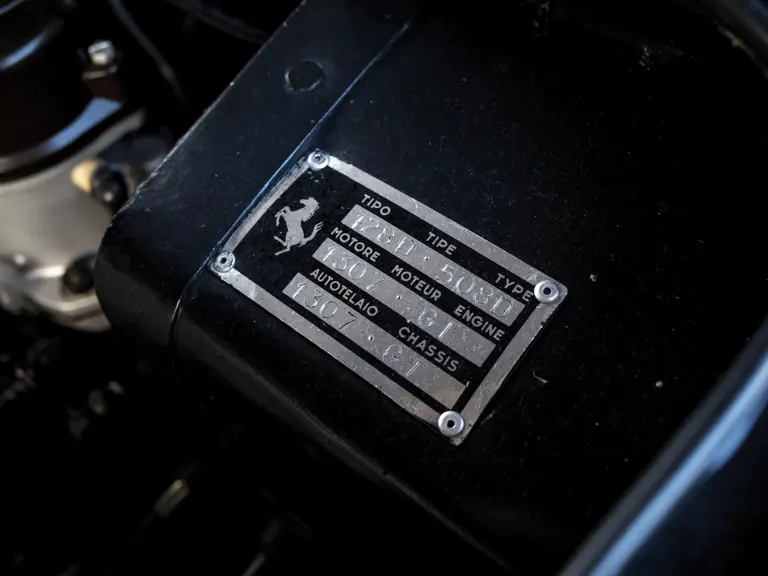
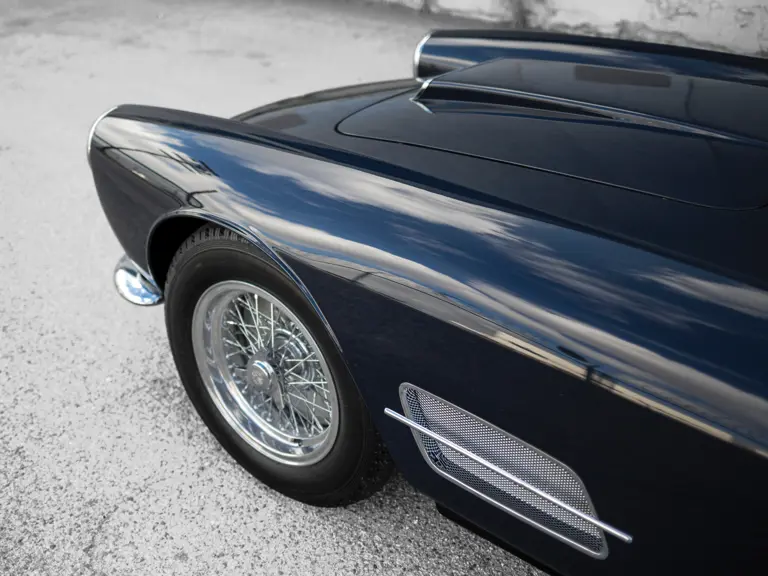
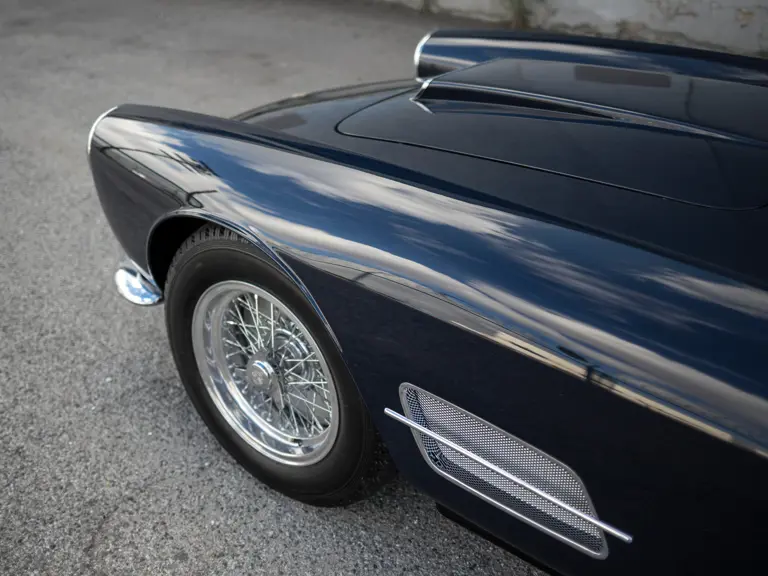
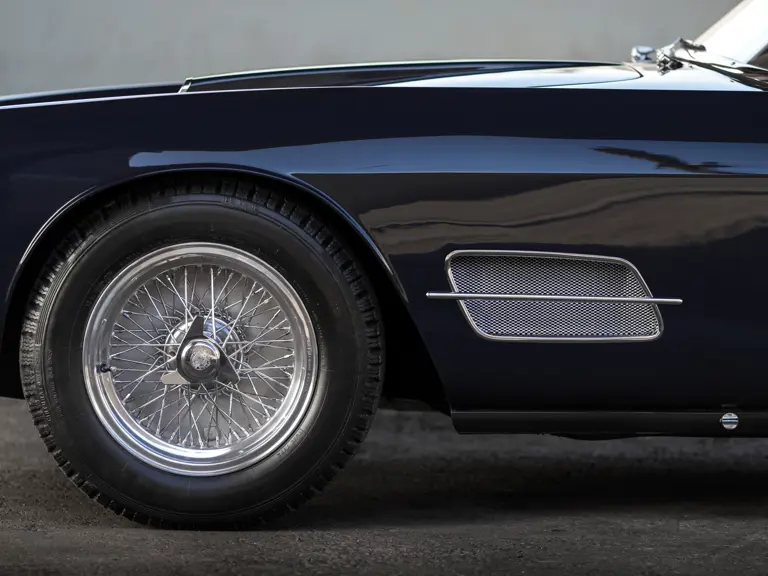
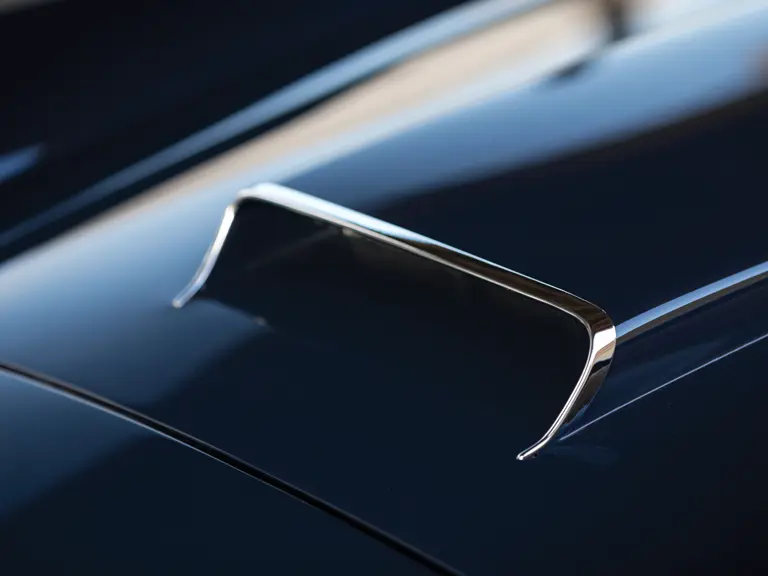
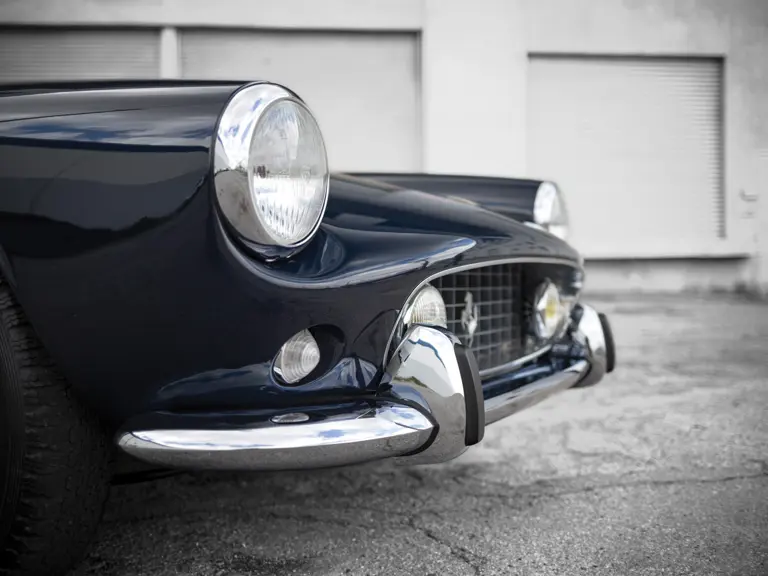
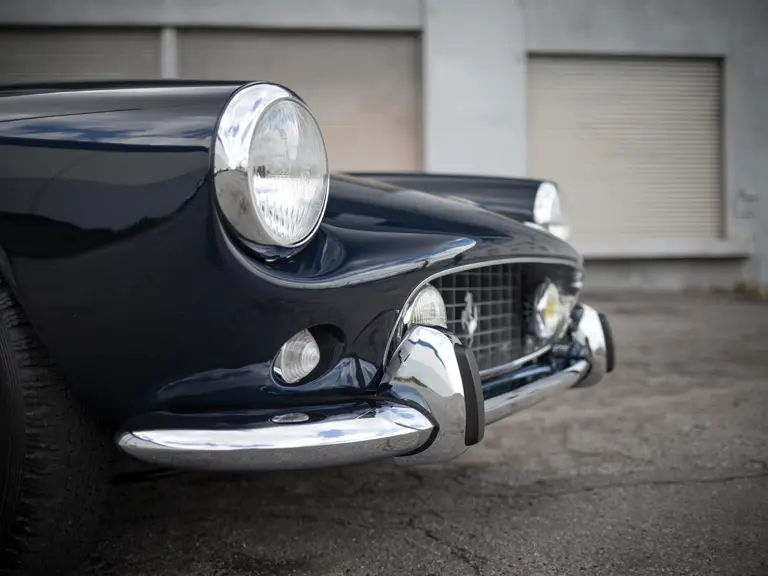
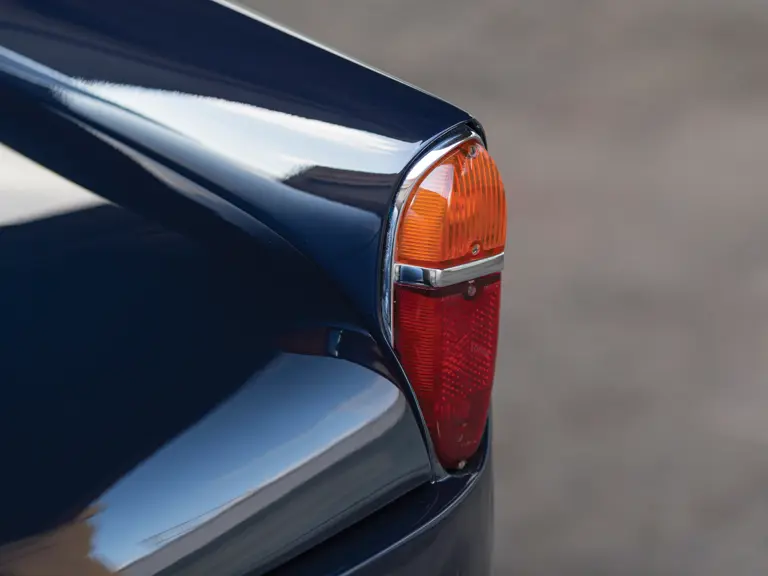
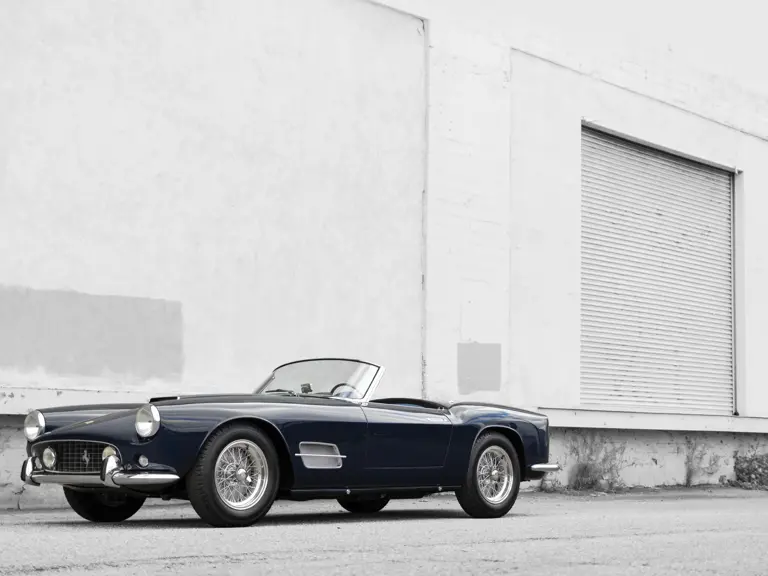
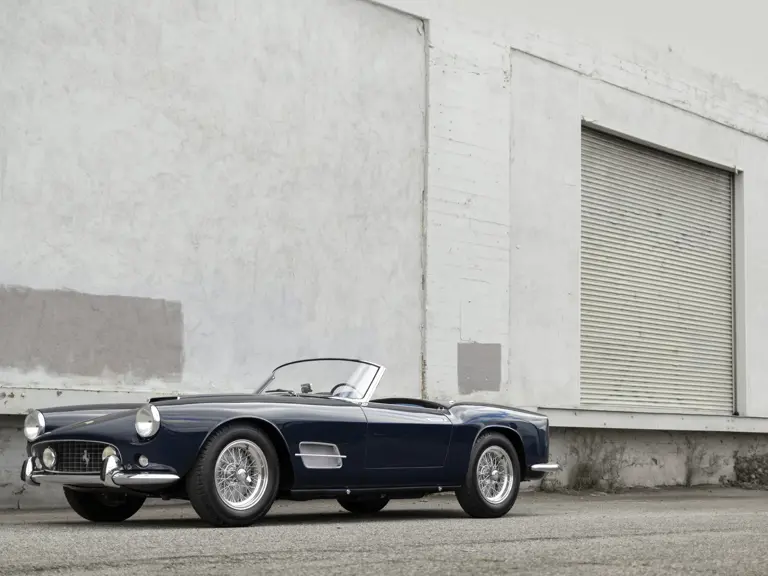
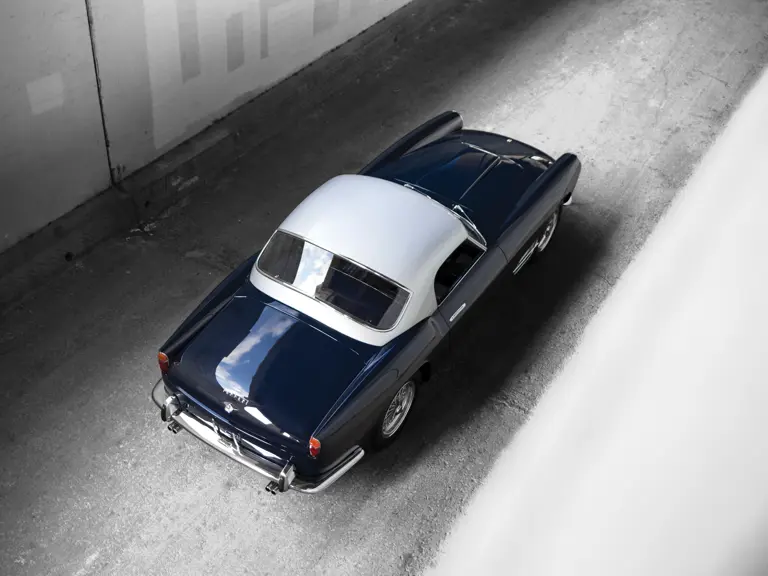
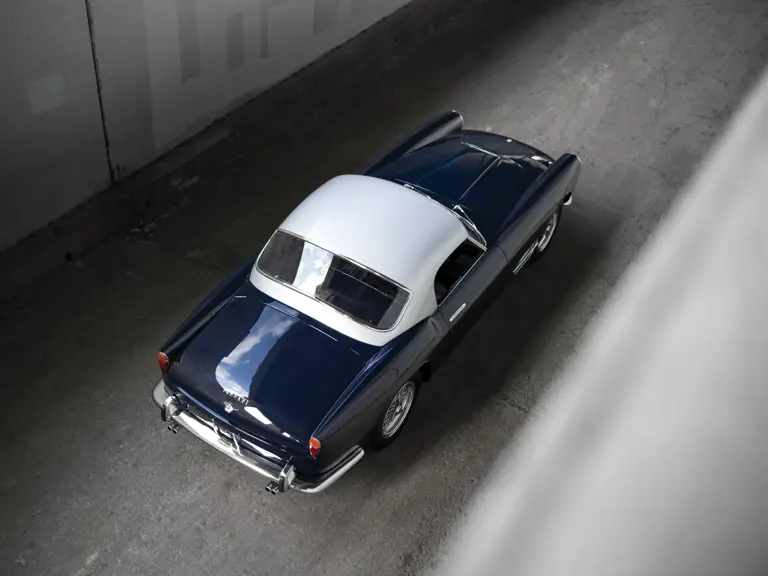
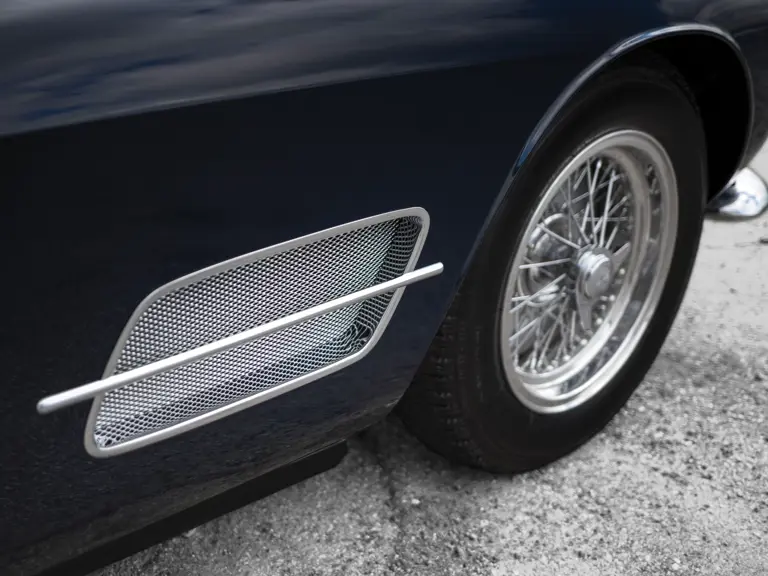
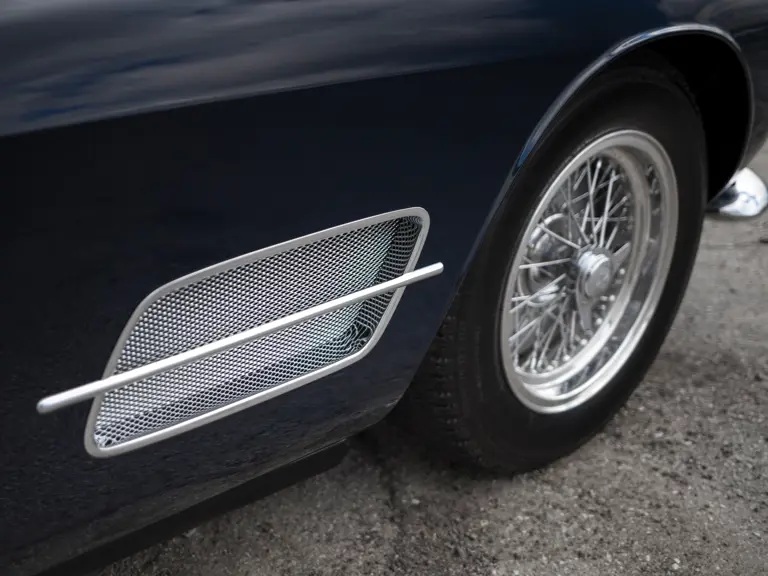
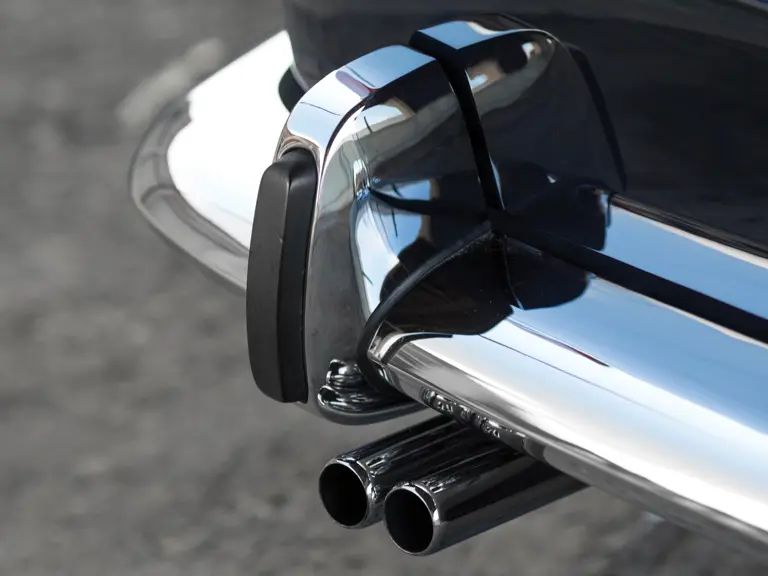
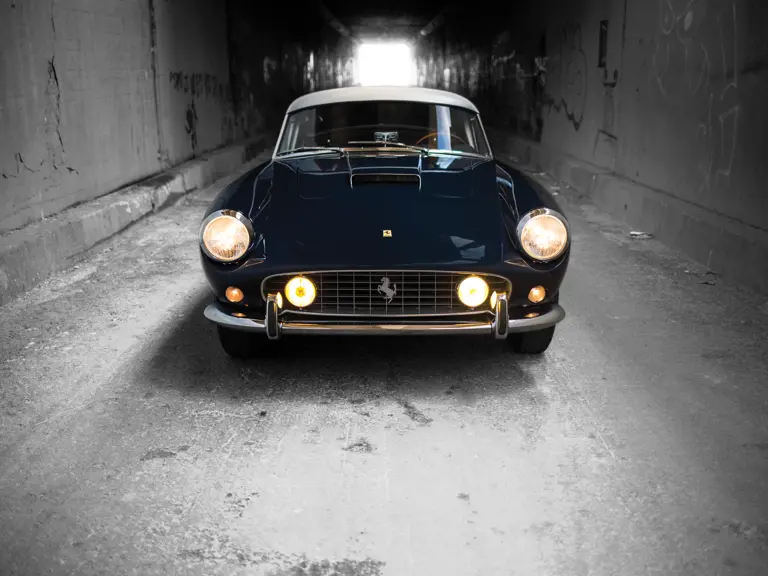
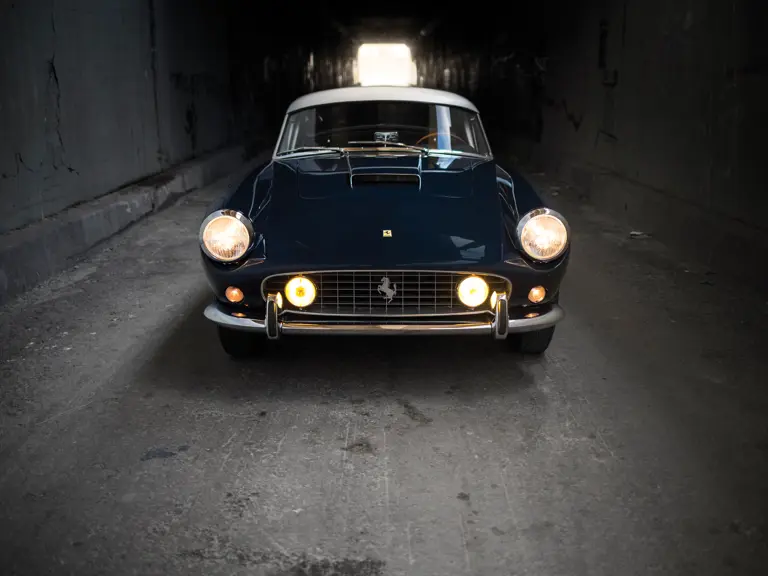
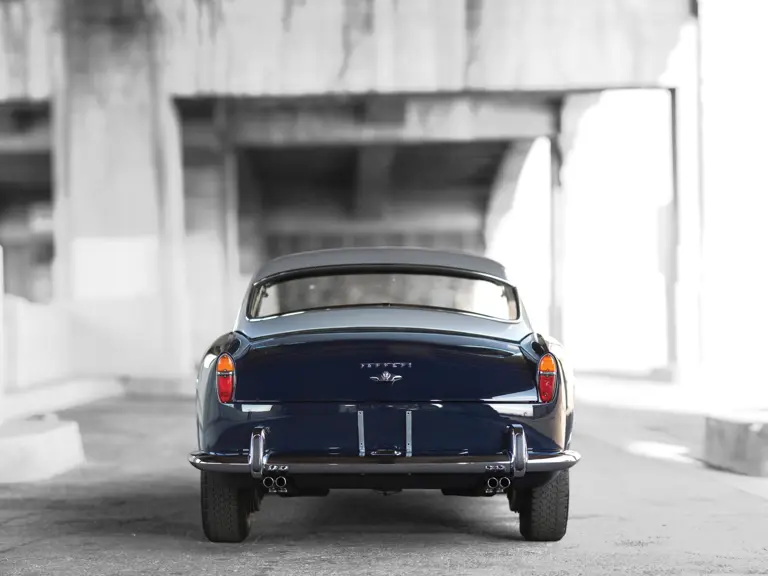
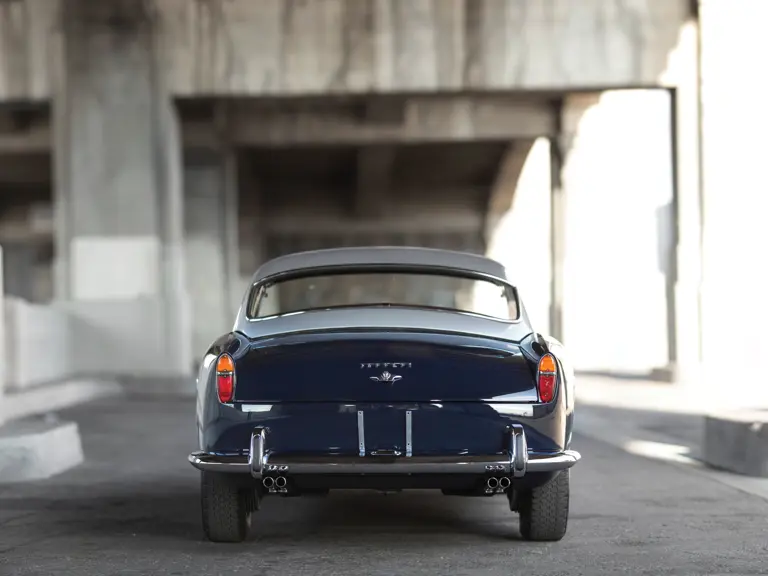
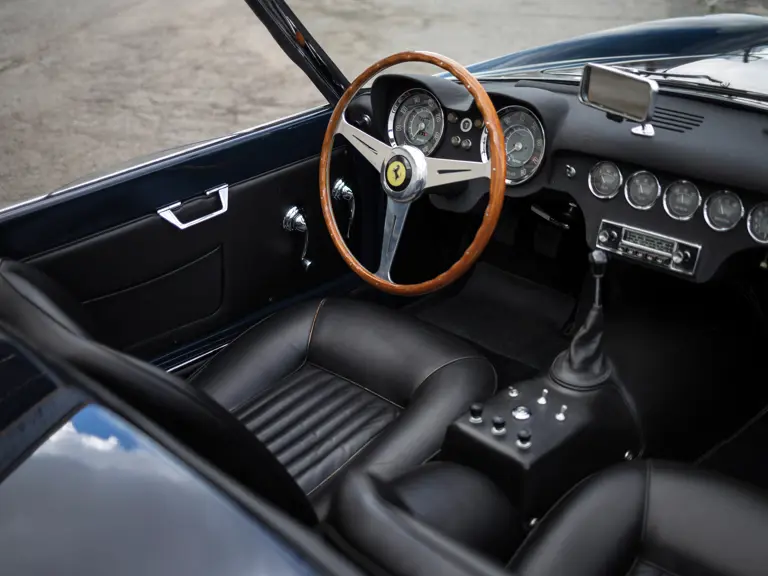
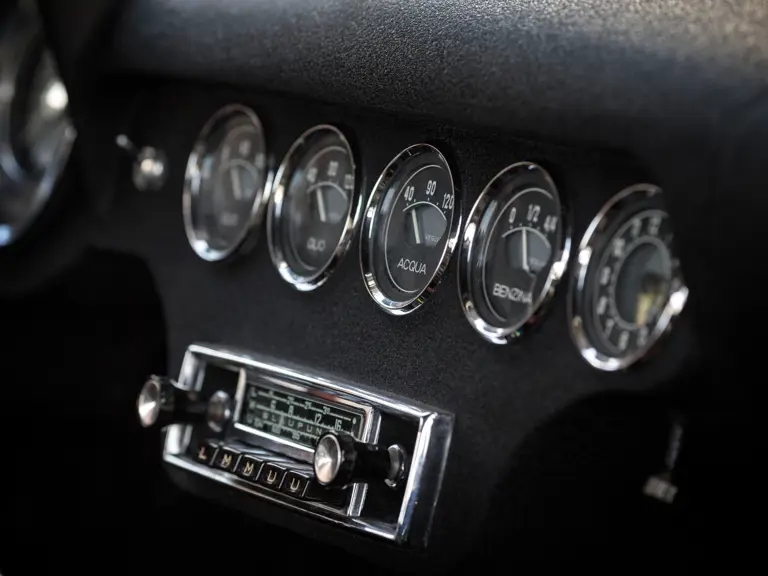
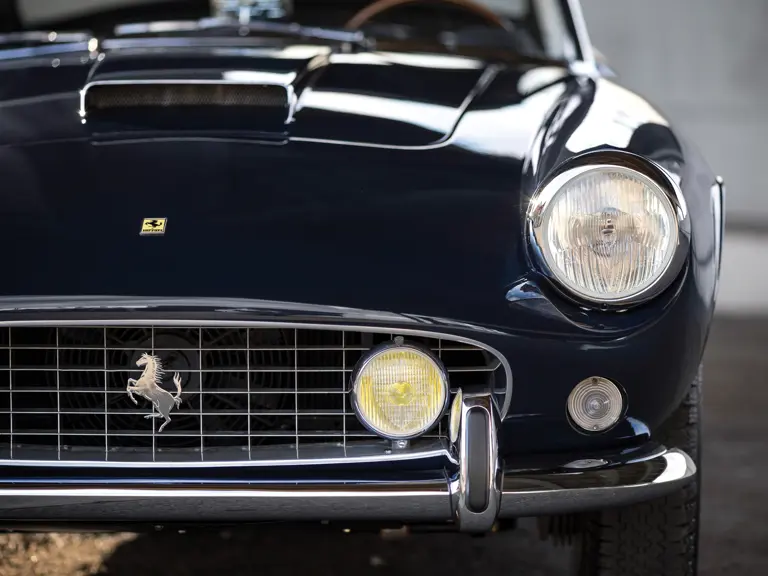
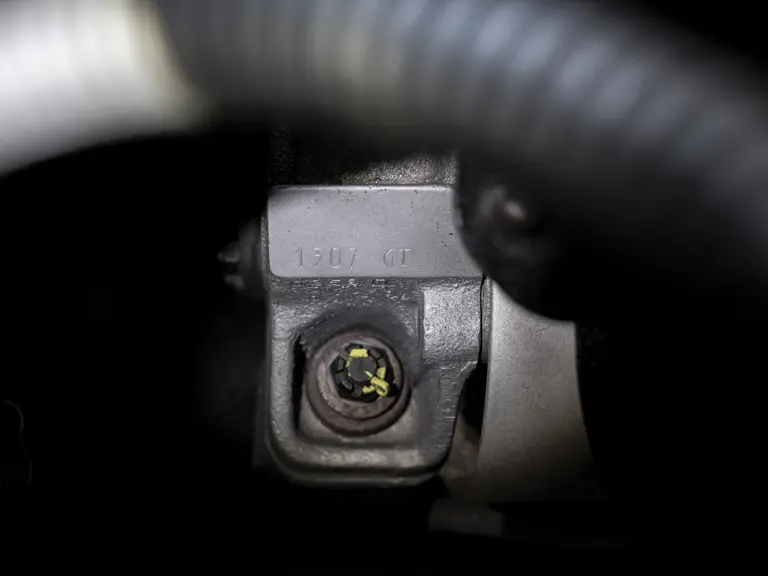
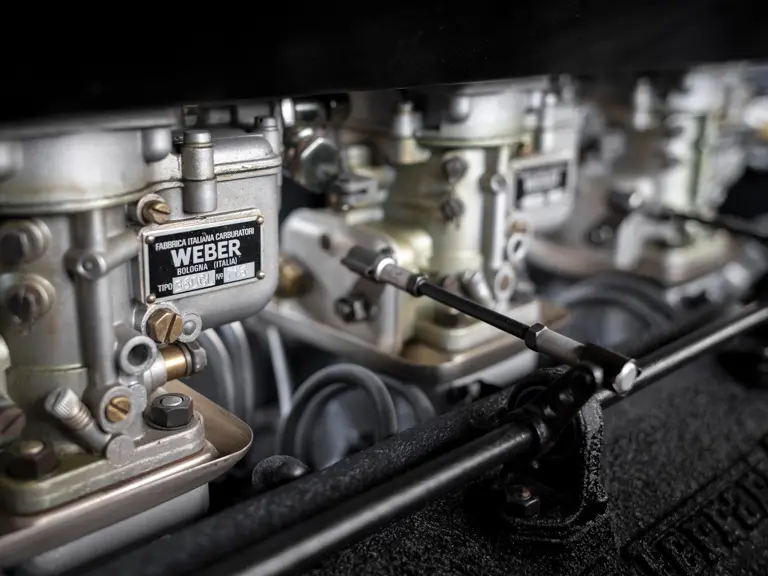
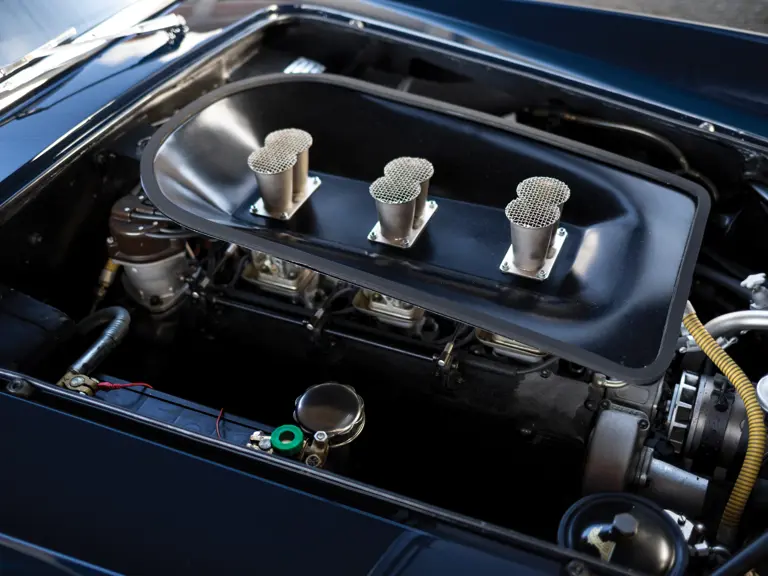
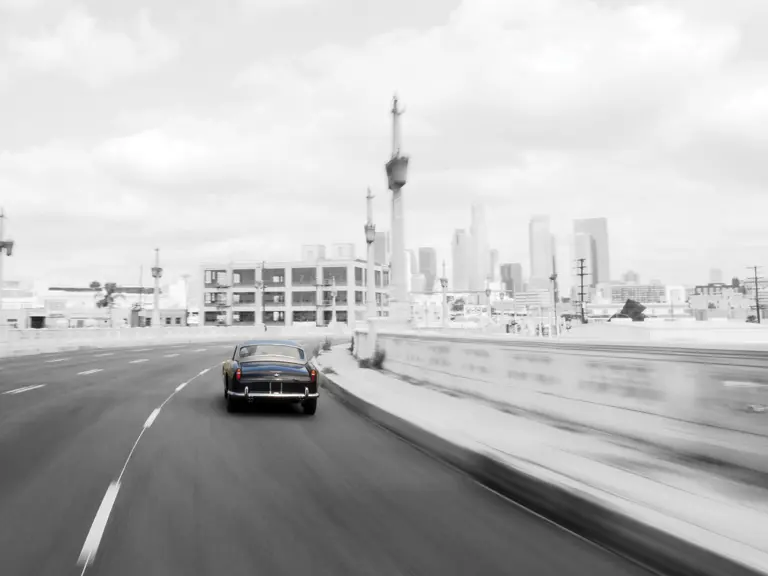
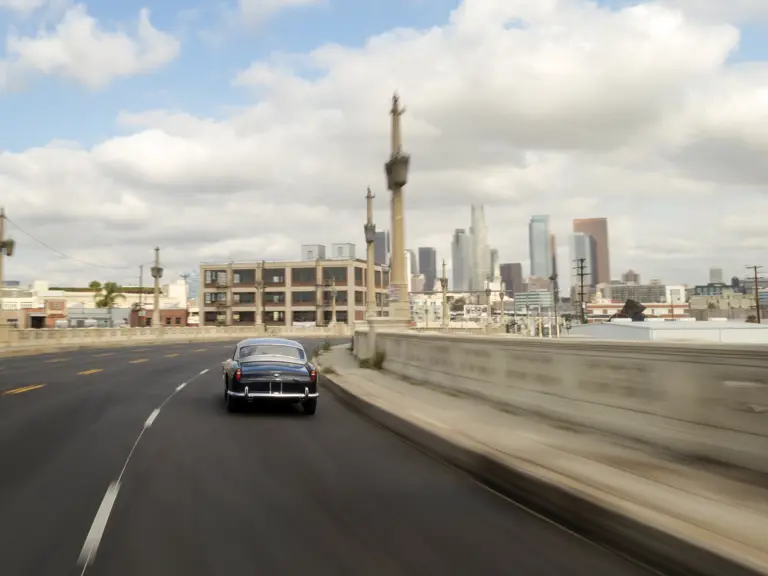
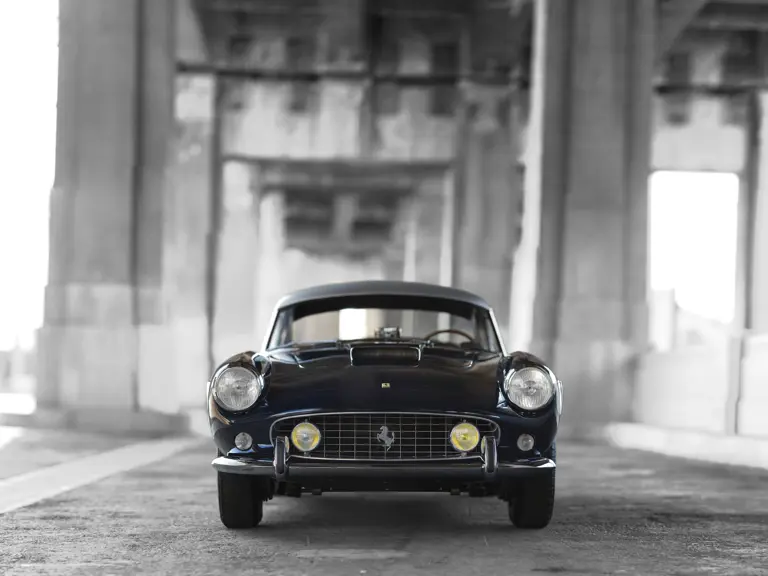
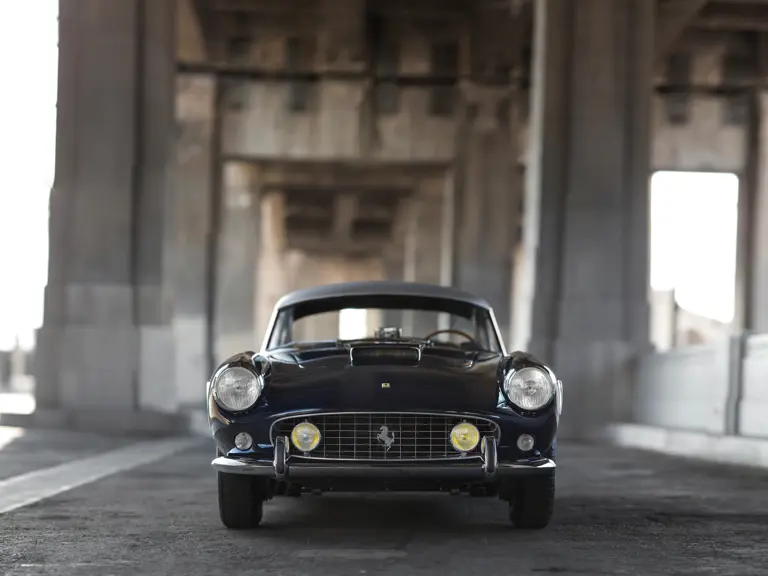
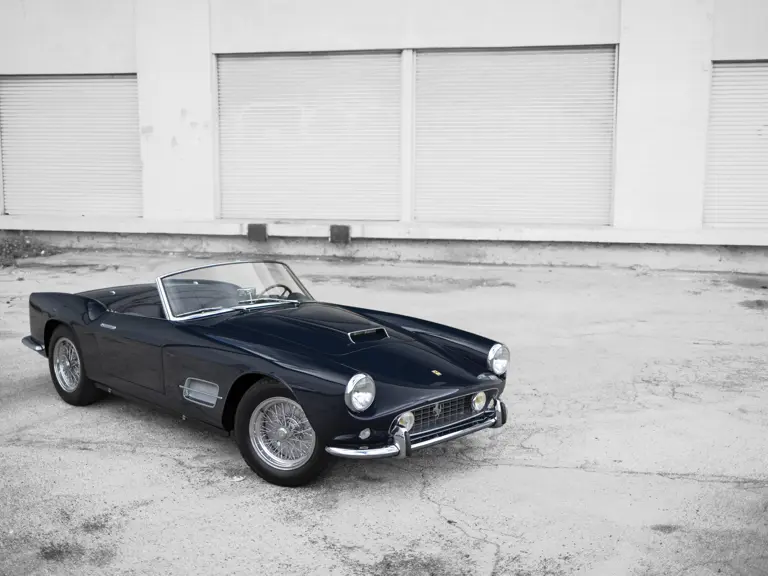
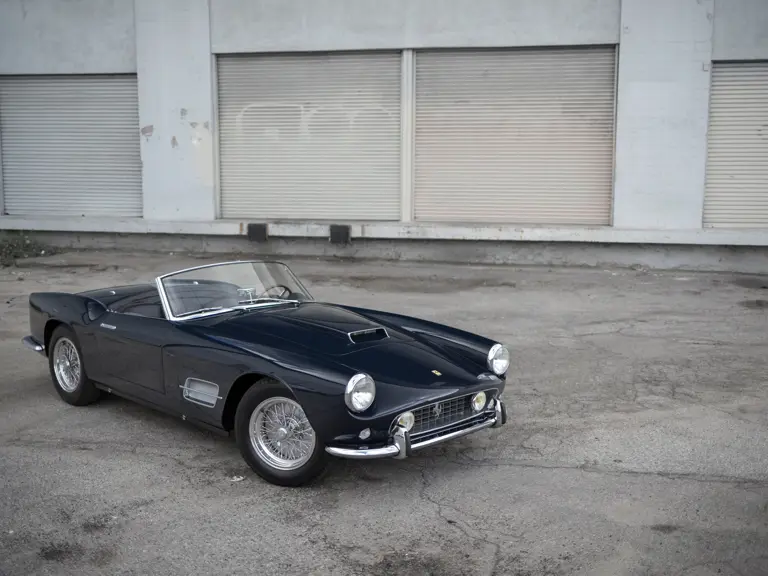
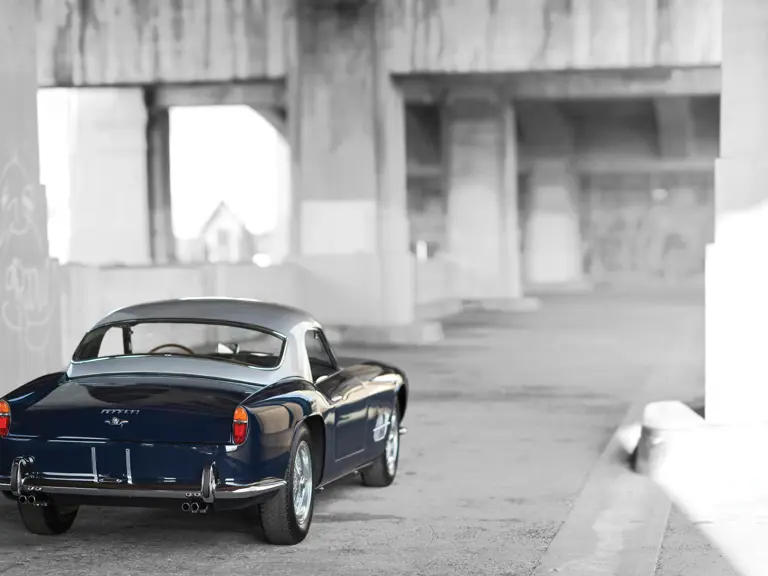
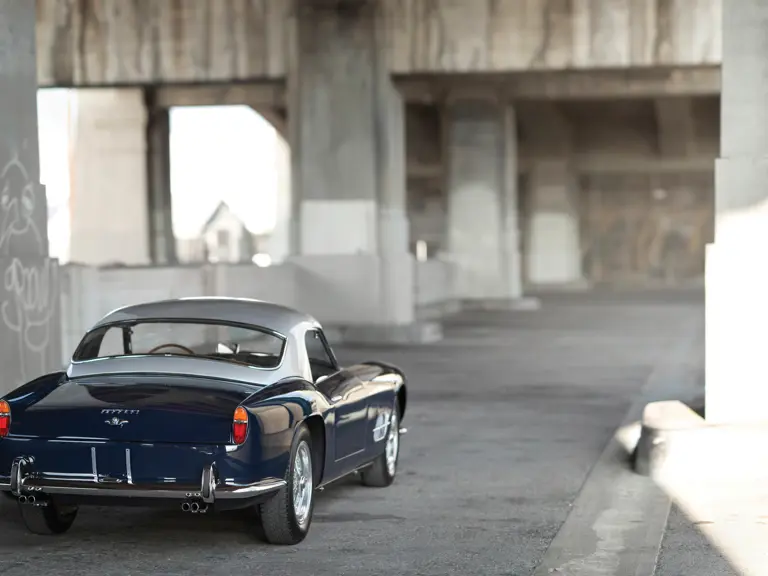
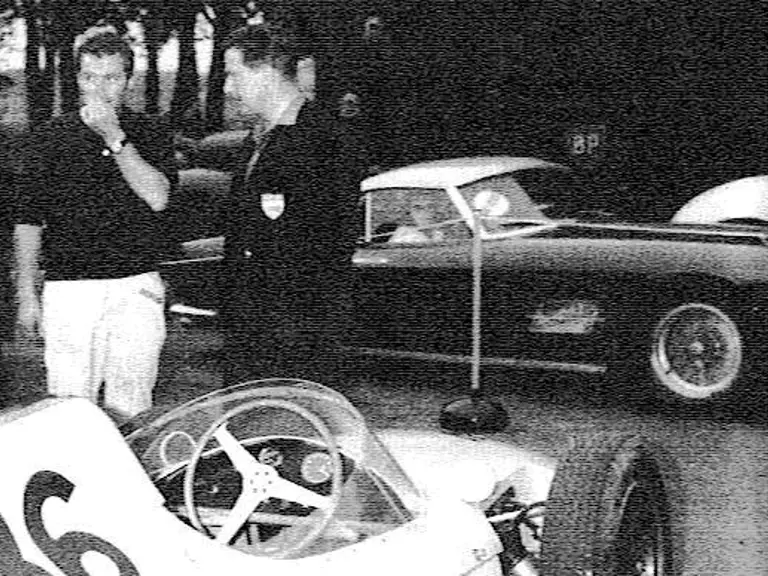
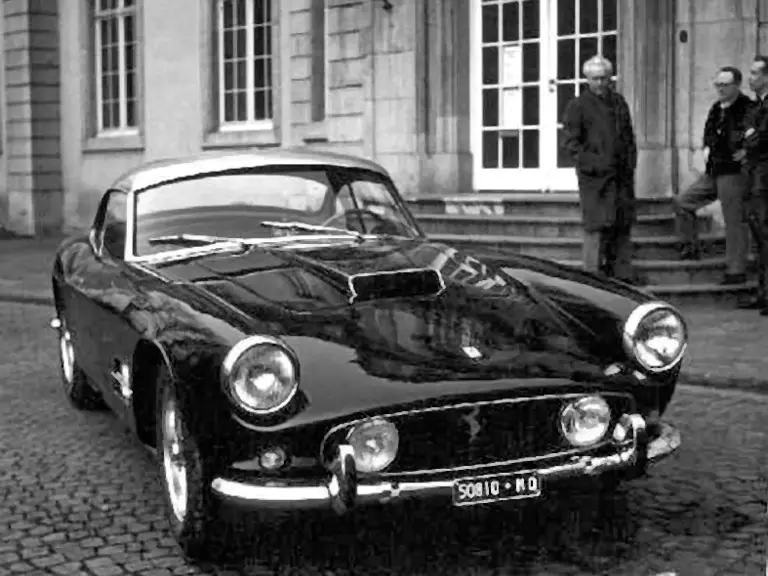
 | Monterey, California
| Monterey, California
